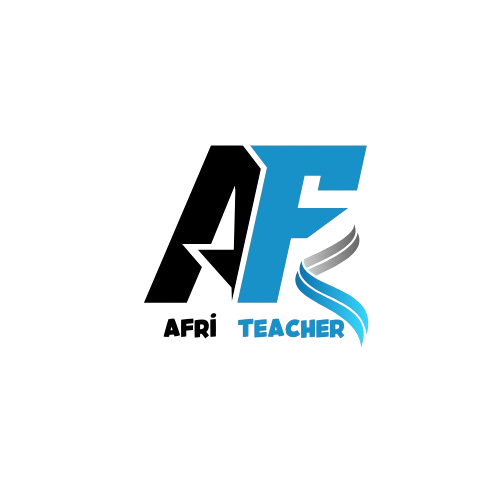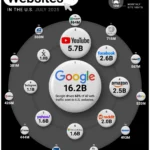Introduction: The Revolution of Online Education Learning
In today’s rapidly evolving digital landscape, online learning platforms have transformed how we acquire knowledge and develop critical skills. Data science, one of the most sought-after fields in 2024, has become increasingly accessible through free online learning opportunities and premium online learning courses. As someone who has extensively researched and tested various online learning systems, I’m here to guide you through the absolute best platforms for mastering data science fundamentals.
The demand for data science professionals continues to skyrocket, with companies offering competitive salaries and benefits. According to recent LinkedIn Learning statistics (https://learning.linkedin.com), data science roles have seen a 46% annual growth rate. This comprehensive guide will explore the top online learning platform options, compare their features, and help you choose the perfect system for your educational journey.
Understanding the Data Science Learning Landscape
What Makes Data Science Special?
Data science combines statistics, programming, machine learning, and domain expertise to extract meaningful insights from data. The question “what is machine learning” frequently arises among beginners, and it’s essential to understand that machine learning forms the backbone of modern data science applications.
According to Coursera’s 2024 Industry Report (https://www.coursera.org), data science remains the most in-demand skill globally, with over 5 million learners enrolled in data-related courses. The benefits of online learning for data science are particularly compelling:
- Flexible scheduling for working professionals
- Access to cutting-edge tools and technologies
- Interactive coding environments
- Real-world project portfolios
- Cost-effective compared to traditional education
The Evolution of Online Learning Platforms
Online learning platforms have evolved dramatically since their inception. Early platforms like Learn Direct pioneered distance education, while modern systems like Coursera, edX, and LinkedIn Learning offer sophisticated learning management systems with AI-powered personalization.
The online learning college model has disrupted traditional education, with institutions like College for Adult Learning and others offering accredited programs entirely online. The blended learning approach, combining online and offline elements, has proven particularly effective for technical subjects like data science.
Top Online Learning Platforms for Data Science
1. Coursera: The Academic Excellence Standard
Coursera (https://www.coursera.org) stands as one of the best online learning platforms for data science fundamentals. Founded in 2012 by Stanford professors, Coursera partners with top universities worldwide to deliver high-quality content.
Key Features:
- Free online courses with optional paid certifications
- University-backed credentials from institutions like Stanford, Johns Hopkins, and Imperial College
- Specialized Data Science Professional Certificates
- Learning Python tracks with hands-on projects
- Mobile app for my online learning on-the-go
Recommended Data Science Courses:
- IBM Data Science Professional Certificate – A comprehensive 9-course series covering Python, SQL, data visualization, and machine learning
- Johns Hopkins Data Science Specialization – R programming-focused curriculum
- Google Data Analytics Professional Certificate – Industry-recognized credential
According to current enrollment data (as of January 2024), over 8.3 million students have enrolled in Coursera’s data science programs, with an average completion rate of 67% – significantly higher than the platform average.
2. edX: Open Source Education for the Masses
edX (https://www.edx.org) represents another premier online learning platform founded by Harvard and MIT. The platform’s commitment to open education aligns perfectly with data science’s collaborative culture.
Standout Features:
- MicroMasters programs that count toward graduate degrees
- Professional Certificate programs from industry leaders
- Python learning online with interactive notebooks
- Free online learning platforms access with audit options
- Self-paced and instructor-led formats
Top Data Science Programs:
- MIT’s MicroMasters in Statistics and Data Science – Graduate-level curriculum covering probability, machine learning, and data analysis
- Harvard’s Data Science Professional Certificate – R-focused program emphasizing statistical thinking
- Microsoft’s Data Science for Beginners – Perfect introduction to fundamental concepts
Recent data from edX (January 2024) shows that their data science learners spend an average of 8.2 hours per week on coursework, with 73% reporting career advancement within 6 months of completion.
3. DataCamp: Specialized Data Science Learning
DataCamp (https://www.datacamp.com) focuses exclusively on data science, making it one of the most specialized online learning courses providers in this field.
Why DataCamp Excels:
- Interactive coding challenges directly in your browser
- Skill tracks for learning Python, R, SQL, and more
- Career tracks aligned with specific job roles
- Daily practice challenges to maintain skills
- Mobile app for practicing learning games style exercises
Popular Learning Paths:
- Data Scientist with Python Career Track – 90+ hours of comprehensive training
- Machine Learning Scientist with Python – Advanced online machine learning concepts
- Data Analyst with SQL – Database-focused curriculum
DataCamp’s gamification approach, incorporating learning games online elements, has proven highly effective, with platform statistics showing 89% learner engagement rates.
4. Udemy: Affordable and Diverse Course Selection
Udemy (https://www.udemy.com) offers one of the largest libraries of online education learning content, with over 10,000 data science-related courses.
Platform Advantages:
- Extremely affordable during frequent sales
- Lifetime access to purchased courses
- Wide variety of teaching styles and approaches
- Language learning online support with multilingual courses
- Practical, project-based curricula
Highly-Rated Data Science Courses:
- “The Data Science Course 2024: Complete Data Science Bootcamp” by 365 Careers – 100,000+ students enrolled
- “Python for Data Science and Machine Learning Bootcamp” by Jose Portilla – Comprehensive learning Python resource
- “Machine Learning A-Z™” – Practical ML implementation course
As of January 2024, Udemy hosts over 180,000 active data science students daily, with new courses added weekly to keep content current.
5. Kaggle Learn: Free and Practical
Kaggle Learn (https://www.kaggle.com/learn) offers completely free online courses with an emphasis on practical application through competitions.
Unique Benefits:
- Completely free, no hidden costs
- Real-world datasets and competitions
- Community-driven learning environment
- Python learning online with industry-standard libraries
- Portfolio-building opportunities
Essential Micro-Courses:
- Python – Fundamental programming concepts
- Intro to Machine Learning – Core ML algorithms
- Pandas – Data manipulation essentials
- Data Visualization – Creating impactful visualizations
Kaggle’s competition platform provides unparalleled opportunities to apply your learning, with daily active competitions attracting over 150,000 data scientists globally.
Specialized Learning Resources and Platforms
Academic and Professional Certification Programs
LinkedIn Learning (LinkedIn Learning)
LinkedIn Learning (https://learning.linkedin.com) integrates seamlessly with professional networking, making it ideal for career-focused learners.
- Over 16,000 courses including extensive data science library
- Certificates that display on LinkedIn profiles
- Learning paths curated by industry experts
- Personalized recommendations based on career goals
- One-month free trial for new users
According to LinkedIn’s Q4 2023 report, data science courses on their platform saw 312% growth in enrollment year-over-year.
O’Reilly Online Learning (O’Reilly Online Learning)
O’Reilly Online Learning (https://www.oreilly.com) offers premium technical content from the world’s leading technology publishers.
- 50,000+ books, videos, and tutorials
- Live training sessions with experts
- Interactive learning scenarios
- Sandboxes for practicing python learning online
- Enterprise-grade content
Subscription costs $49/month for individuals, with corporate plans available. O’Reilly’s platform is particularly strong for advanced learners seeking deep learning specialization.
Regional and Specialized Platforms
Alison Online Learning
Alison Online Learning (https://alison.com) provides free certificate and diploma courses, making quality education accessible globally.
- 100% free courses with optional certificates
- Over 3,000 courses including data science fundamentals
- Self-paced learning structure
- Mobile-optimized platform
- Beginner-friendly content
Codecademy (Codecademy)
Codecademy (https://www.codecademy.com) excels at interactive programming instruction, perfect for learning Python and other data science languages.
- Interactive code editor with immediate feedback
- Skill paths and career paths
- Pro membership includes real-world projects
- Learning games approach to programming
- Mobile app for iOS and Android
Recent statistics show Codecademy has over 50 million registered users, with data science and Python being their most popular tracks.
Supplementary Learning Tools and Resources
IXL Learning (IXL Learning)
While IXL Learning (https://www.ixl.com) primarily focuses on K-12 mathematics, its comprehensive math curriculum provides essential foundational knowledge for aspiring data scientists.
Kahoot! (Kahoot)
Kahoot (https://kahoot.com) offers gamified learning experiences that can supplement technical study with engaging quiz-based review sessions, particularly useful for memorizing key concepts and formulas.
Scholastic Learning Zone
The Scholastic Learning Zone provides supplementary resources that can help learners develop critical thinking and reading comprehension skills essential for understanding technical documentation.
Language-Specific Learning Paths
Learning Python for Data Science
Learning Python is fundamental to modern data science. The best python learning online resources include:
- Python.org’s Official Tutorial (https://www.python.org) – Free, authoritative resource
- Real Python (https://realpython.com) – In-depth tutorials and articles
- Python for Everybody on Coursera – Beginner-friendly approach
- DataCamp’s Python Track – Interactive, data-focused curriculum
According to the TIOBE Index for January 2024, Python maintains its position as the #1 programming language, with data science being a primary driver of its popularity.
R Programming Resources
While Python dominates, R remains crucial for statistical analysis:
- R for Data Science Online (https://r4ds.had.co.nz) – Free book by Hadley Wickham
- DataCamp’s R Track – Comprehensive interactive learning
- Coursera’s Statistics with R Specialization – Academic approach
- RStudio Education (https://education.rstudio.com) – Official learning resources
SQL for Data Management
SQL knowledge is essential for data scientists working with databases:
- Mode Analytics SQL Tutorial (https://mode.com/sql-tutorial) – Free, practical approach
- Khan Academy’s SQL Course – Beginner-friendly introduction
- SQLZoo (https://sqlzoo.net) – Interactive SQL exercises
- LeetCode Database Problems – Interview preparation
Building Your Data Science Learning Path
For Complete Beginners
If you’re new to data science, follow this structured path using free online learning platforms:
Month 1-2: Programming Fundamentals
- Start with Codecademy’s Python course (free)
- Complete Kaggle’s Python micro-course
- Practice with HackerRank’s Python challenges (https://www.hackerrank.com)
Month 3-4: Mathematics and Statistics
- Khan Academy’s Statistics and Probability (https://www.khanacademy.org)
- Coursera’s Mathematics for Machine Learning Specialization
- IXL mathematics modules for foundational concepts
Month 5-6: Data Science Foundations
- edX’s Data Science for Beginners
- DataCamp’s Data Scientist with Python track (first 4 courses)
- Build 2-3 portfolio projects using Kaggle datasets
Month 7-9: Machine Learning
- Coursera’s Machine Learning by Andrew Ng
- Fast.ai’s Practical Deep Learning for Coders (https://www.fast.ai)
- Google’s Machine Learning Crash Course (https://developers.google.com/machine-learning/crash-course)
Month 10-12: Specialization and Projects
- Choose a specialization (NLP, Computer Vision, etc.)
- Complete Kaggle competitions
- Build comprehensive portfolio
- Network via LinkedIn Learning community
For Career Switchers
If you’re transitioning from another field, leverage your existing skills:
Weeks 1-4: Intensive Bootcamp
- Udemy’s Complete Data Science Bootcamp
- DataCamp’s career track (dedicate 20+ hours/week)
- Daily coding practice on LeetCode and HackerRank
Weeks 5-8: Specialization
- Choose domain-relevant courses (CPA online learning for finance, healthcare analytics for medical professionals, etc.)
- Complete Coursera Professional Certificate in your chosen domain
- Join online learning programs specific to your industry
Weeks 9-12: Portfolio and Job Prep
- Build 5+ substantial projects
- Contribute to open-source projects
- Complete LinkedIn Learning courses on data science interviewing
- Network through online learning hub communities
For Working Professionals
Balance learning with full-time work using these online learning platform strategies:
Weekly Time Investment: 10-15 hours
- Morning study sessions (1 hour before work)
- Lunch break practice (30 minutes)
- Evening coursework (1-2 hours)
- Weekend deep dives (4-6 hours)
Recommended Platforms:
- LinkedIn Learning – integrates with professional development
- Coursera – flexible deadlines
- O’Reilly Online Learning – comprehensive resources
- DataCamp – short, focused lessons
Benefits of Online Learning for Data Science
The Benefits of Online Learning Compared to Traditional Education

- Cost-Effectiveness: Free online learning platforms like edX and Coursera offer audit options costing $0, while paid certificates range from 39−39−99. Compare this to traditional university programs costing 30,000−30,000−120,000.
- Flexibility: My online learning schedule can fit around work, family, and other commitments. Platforms like Udemy offer lifetime access, eliminating deadline pressure.
- Current Content: Online learning courses update rapidly to reflect industry changes. Traditional curricula often lag 2-3 years behind current practices.
- Global Access: Whether you’re in Sydney using online courses Australia, New South Wales with online learning NSW, or Queensland accessing learning online QLD health resources, quality education is accessible worldwide.
- Practical Focus: Most online learning systems emphasize hands-on projects over theoretical knowledge, better preparing you for real-world work.
- Community and Networking: Platforms facilitate global connections with peers and mentors, often more diverse than local programs.
Addressing Common Concerns: Disadvantages of Online Learning
While online education offers tremendous benefits, it’s important to acknowledge the disadvantages of online learning:
- Self-Discipline Required: Without structured class times, motivation can wane
- Limited Face-to-Face Interaction: Less opportunity for spontaneous discussions
- Technical Requirements: Requires reliable internet and suitable hardware
- Hands-On Lab Limitations: Some advanced topics benefit from physical lab access
- Credential Recognition: Not all employers equally value online certificates
Solutions:
- Join study groups through online learning hub communities
- Attend virtual office hours and live sessions
- Invest in cloud computing credits for practical work
- Supplement with local meetups and conferences
- Choose accredited programs from recognized institutions
Advanced Learning Strategies and Tools
Blended Learning Approaches
Blended learning combines online and offline educational elements for optimal results:
- Online Theory + Local Practice: Learn concepts through Coursera or edX, practice at local data science meetups
- MOOC + University Credit: Many universities now accept edX MicroMasters credits, allowing online distance learning to contribute toward degrees
- Self-Study + Mentorship: Combine free online courses with paid mentorship through platforms like MentorCruise
- Corporate Training + Personal Development: Employers often provide LinkedIn Learning or O’Reilly subscriptions; supplement with specialized courses
Specialized Learning Resources by Topic
Deep Learning
Deep learning requires specialized resources:
- Fast.ai (https://www.fast.ai) – Practical, top-down approach
- DeepLearning.AI Specialization on Coursera – Taught by Andrew Ng
- TensorFlow and Keras Courses on Udemy and **Coursera












